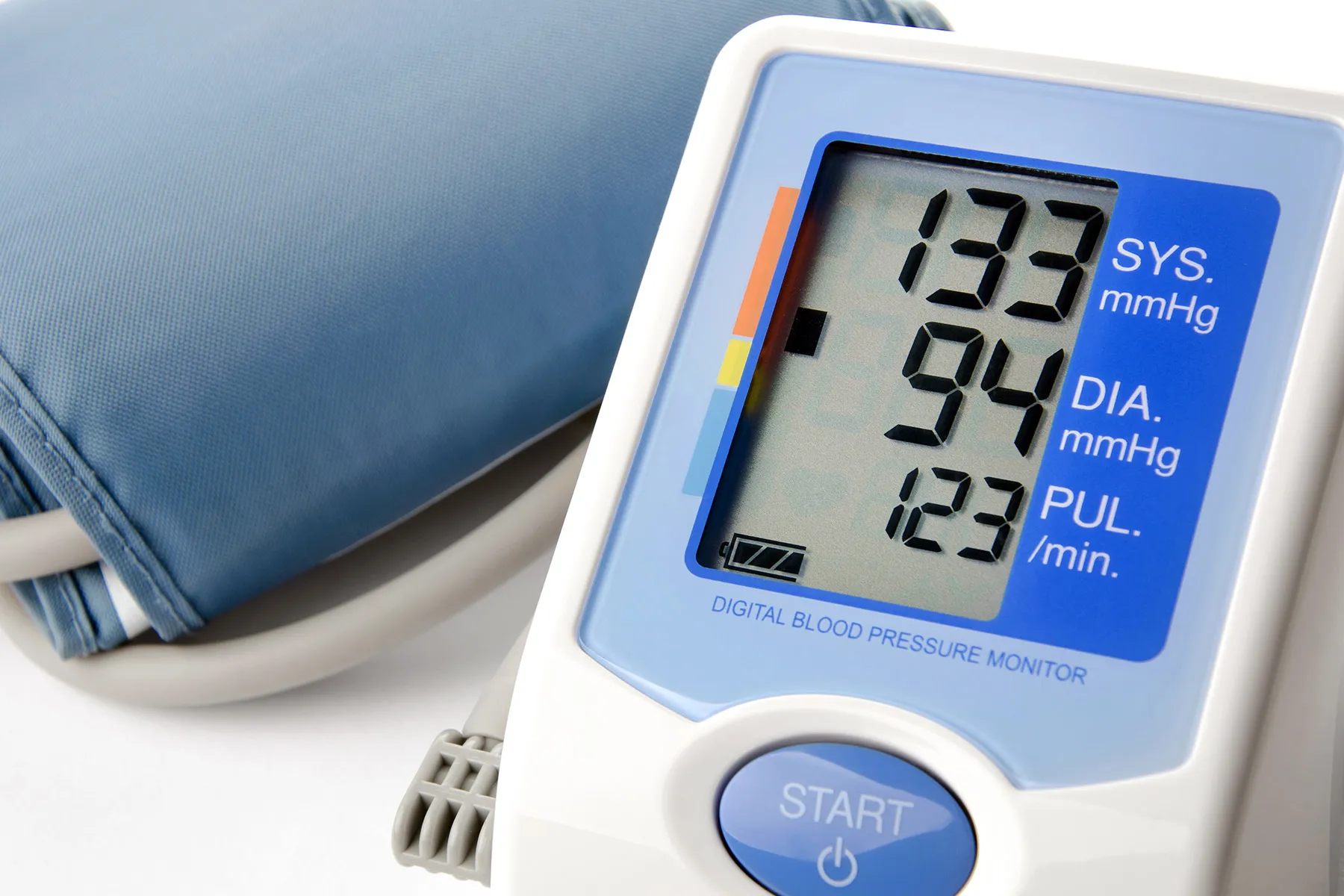July 12, 2023 — Can a seemingly healthy person develop high blood pressure? The answer is yes: You can develop primary hypertension, or high blood pressure, even if you exercise regularly, eat healthy foods, and don’t smoke.
Primary hypertension is high blood pressure from an unknown cause — though it commonly stems from family history and genetics as well as lifestyle choices and other factors. Secondary hypertension is high blood pressure from an illness such as kidney failure, sleep apnea, preeclampsia, or thyroid disease.
Nearly 50% of U.S. adults, or around 119 million people, have stage 1 hypertension (meaning a blood pressure at or above 130/80) or stage 2 hypertension (at or above 140/90), according to the CDC. Having high blood pressure can lead to heart disease — the leading cause of death in U.S. adults — but only around 1 in 4 people with high blood pressure have the disease under control.

Martin Cassels, 57, falls into the primary hypertension category. He goes on daily 3-mile walks and has maintained a normal weight for his 6-foot stature through the years. Cassels was surprised when his family doctor diagnosed him with high blood pressure in his 40s at a routine checkup. Cassels needed to shed pounds to normalize his blood pressure levels. He adopted a strict diet and exercise plan, and even dropped a pant size.
Losing weight ended up raising Cassels’ blood pressure levels — a pretty rare phenomenon, said Oscar Cingolani, MD, associate professor of medicine and director of the Hypertension Program at Johns Hopkins Medicine in Baltimore
“With weight reduction, it’s good if you are overweight. If you are not overweight or obese, weight loss usually has no effect on high blood pressure, says Cingolani. “I don’t know of cases where losing weight increases blood pressure.”
What happened next threw him for a loop. “She [the doctor] said I needed to lose another 5 pounds,” Cassels said. “I’m sort of a fairly lean person anyway. I thought, ‘how? I mean, I’m killing myself.’”
One day, Cassels ran into a neighbor who happened to be a doctor and casually shared his hypertension struggles. “That’s not that bad,” the neighbor said after hearing Cassels’ blood pressure level. “That’s borderline.”
Cassels visited his local walk-in clinic to get a second opinion. The doctor there said some people just have higher blood pressure levels — and that treatment can help. Cassels got started on a low dose of blood pressure medication. His blood pressure levels have been stable ever since.
If you live a healthy, active lifestyle with no symptoms of illness, here are some ways you can get ahead of a possible hypertension diagnosis, along with tips to keep this “silent disease” in check.
How Common Is Primary Hypertension in America?
Primary hypertension makes up around 90% of high blood pressure cases in the U.S., Cingolani said. Primary hypertension can happen through inheriting various genes from your parents, Cingolani says. But research on is still ongoing.
“We have identified certain genes that are present in people with hypertension but not in others,” Cingolani says. “So, unfortunately, we don’t have a way of telling if somebody will or will not develop hypertension. We do know that if you were born to hypertensive parents, you are more likely to be hypertensive as you age.”
Cassels says his mother, who is 83, developed high blood pressure. He suspects that he likely inherited hypertensive genes from her.
Keep in mind: High blood pressure can be inherited through extended family, too, such as aunts, uncles, and grandparents, said Cingolani.
In addition to genetic makeup, you can also develop hypertension through obesity, eating too much salt, little physical activity, and social determinants of health — such as socioeconomic status and lack of health insurance, said Rebecca Opole, MD, an internal medicine specialist at the University of Kansas Health System.
What Are the Signs That You Might Have Primary Hypertension?
Hypertension is commonly known as the “silent killer.” A person can have hypertension and have a heart attack or stroke “with little warning or clear early signs,” said Shannon Hoos-Thompson, MD, a cardiovascular medicine specialist at the University of Kansas Health System.
“If blood pressure increases rapidly, headaches, vision changes, cognition or focus become more difficult, chest discomfort, and sudden and sustained fatigue may occur,” Hoos-Thompson said.
For patients who have had primary hypertension for a longer period of time, such as months or years, treatment may not be immediately effective since their bodies are already accustomed to higher blood pressure levels.
That’s one reason regular checkups with your primary care doctor are so important: You likely would not be able to tell you have high blood pressure without it being checked.
Can You Prevent Primary Hypertension?
Regularly checking your blood pressure can help you get ahead of the disease or get treatments early in the diagnosis. Cingolani suggested buying a blood pressure machine for your home instead of waiting for your next doctor’s visit. If you’re obese or overweight and eat salty foods regularly, changing what you eat could “prevent or delay hypertension for years,” he said.
An active lifestyle can also make an impact. Shoot for at least 10 minutes of light to medium exercise intensity 3 days a week, though 30 minutes of physical activity is ideal, said Hoos-Thompson. Swapping overly processed foods for nutritious veggies and fruits, along with limiting carbs and fats — like pasta, bread, and other starches — can also help you maintain a normal blood pressure.
Getting enough sleep — at least 6 hours — is critical, too, Hoos-Thompson said. “People with sleep disorders are more prone to high blood pressure and resistant hypertension.”

